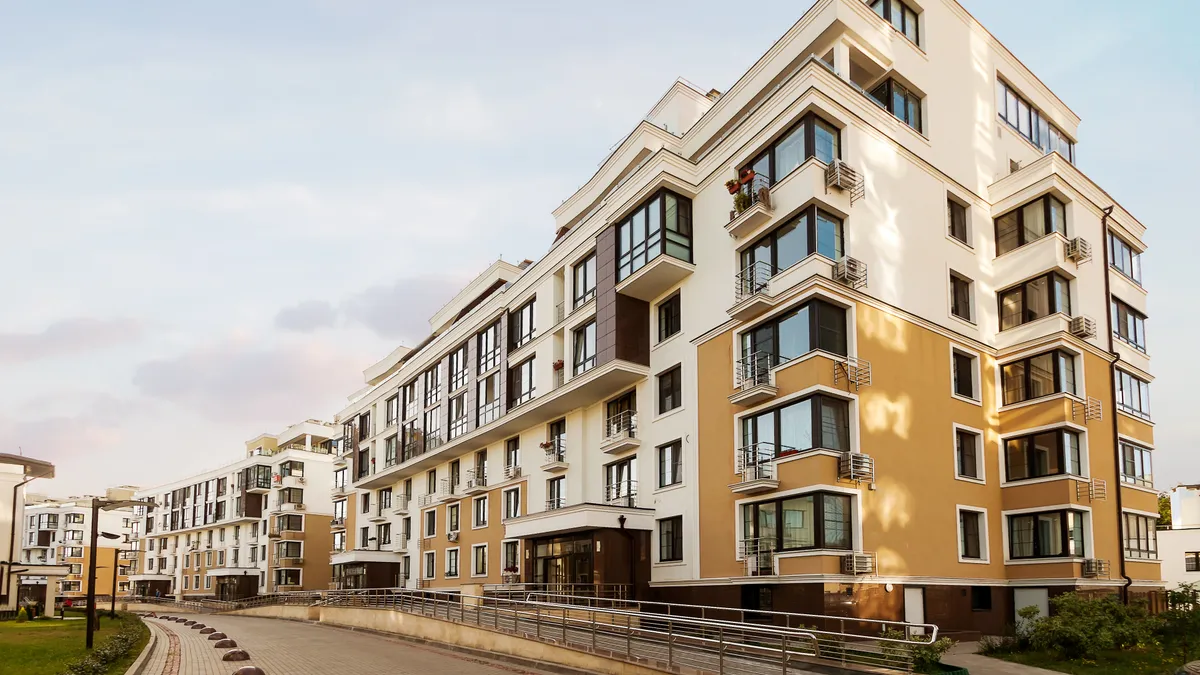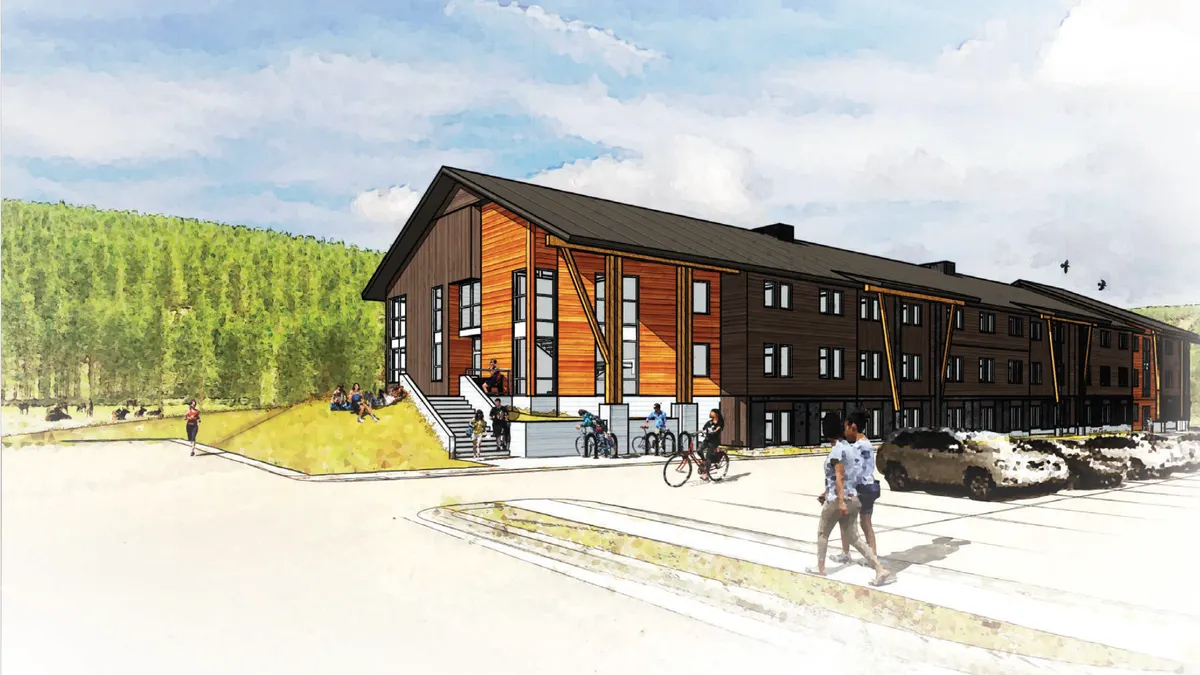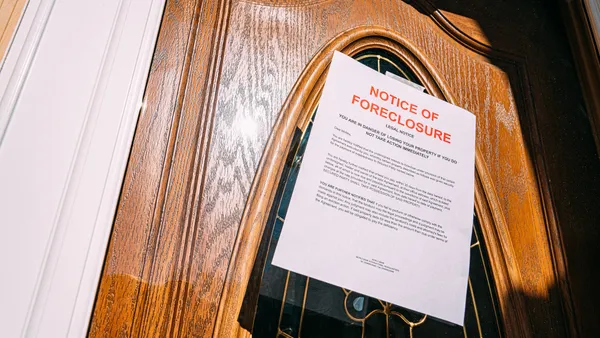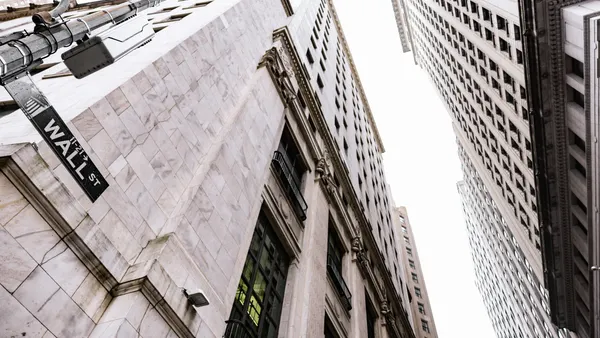Dive Brief:
- Apartment deal volume has fallen for the 14th straight month, as the Federal Reserve’s interest rate hikes have taken a long-term toll on the sales market, according to a report that data firm MSCI Real Assets shared with Multifamily Dive.
- In October, apartment sales declined 72% year over year to $6.2 billion. Prices also continued to fall, dropping 13.7% YOY in October, according to MSCI.
- Entity-level deals, which can pump up sales figures, have been nonexistent over the past 12 months, which marks the third-longest dry spell for those large deals in the apartment sector, according to MSCI. The only longer period without company-level transactions was in the aftermath of the Global Financial Crisis and the start of the COVID-19 pandemic.
Dive Insight:
Though apartment prices are falling, it's still not enough to open the floodgates for more deals. Cap rates stood at 5.2% in October, while the 10-year U.S. Treasury rate averaged 4.8% for the month.
“For many investors, it is simply hard to get excited about that extra 40 basis points of spread over the risk-free rate at a time when growth in market rents is slowing,” MSCI wrote.
Until sellers get more desperate, it will be harder for deals to pencil out unless there are extenuating circumstances, like the ability for buyers to assume a loan with a below-market interest rate.
However, except for lower-level assets in places like Houston and properties in New York City and San Francisco, owners aren’t yet facing a lot of stress.
“The deals that are blowing up today — and there are plenty of deals blowing up today — are really C-minus transactions that were over-leveraged,” said Ric Campo, CEO of Camden Property Trust, on the REIT’s second-quarter earnings call.
Many developers who have lease-ups are getting reprieves, at least until their properties are stabilized, according to Benjamin Schall, CEO of Arlington, Virginia-based REIT AvalonBay Communities, on the firm’s Q3 earnings call.
“What we've been seeing there to date is situations where equity capital is putting more equity into those deals, effectively recapitalizing them and/or lenders who are agreeing to extend out those loans,” Schall said.
However, as the higher interest rate environment stretches beyond two years, more discounts could appear in the market. “We're not seeing distress at this point,” Schall said. “We do expect there to be some dislocation that comes through the system.”
Click here to sign up to receive multifamily and apartment news like this article in your inbox every weekday.









